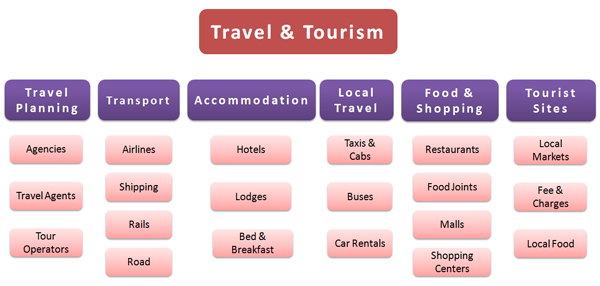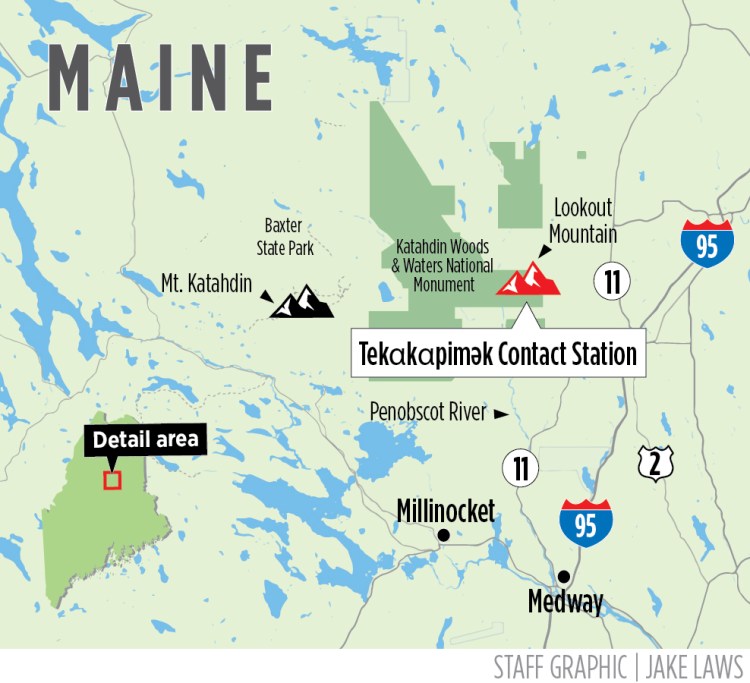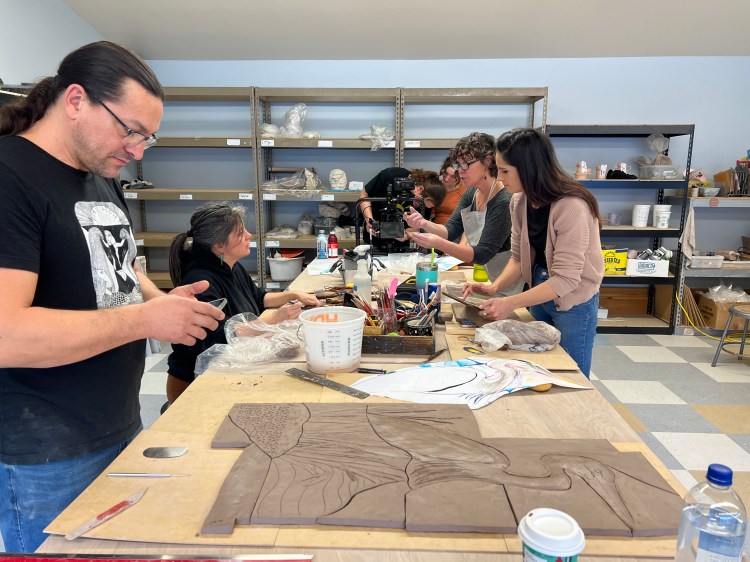
IELTS essay Tourism
This blog teaches you how to write essays on the topic of tourism.
It includes the following:
𝐊𝐞𝐲 𝐕𝐨𝐜𝐚𝐛𝐮𝐥𝐚𝐫𝐲:
𝐎𝐯𝐞𝐫𝐯𝐢𝐞𝐰 𝐚𝐧𝐝 𝐈𝐦𝐩𝐨𝐫𝐭𝐚𝐧𝐜𝐞:
𝐂𝐨𝐦𝐦𝐨𝐧 𝐀𝐫𝐠𝐮𝐦𝐞𝐧𝐭𝐬 𝐚𝐧𝐝 𝐃𝐞𝐛𝐚𝐭𝐞𝐬:
𝐄𝐱𝐚𝐦𝐩𝐥𝐞𝐬 𝐟𝐫𝐨𝐦 𝐂𝐮𝐫𝐫𝐞𝐧𝐭 𝐄𝐯𝐞𝐧𝐭𝐬:
𝐌𝐨𝐝𝐞𝐥 𝐄𝐬𝐬𝐚𝐲:
- Cultural Exchange : the sharing of ideas, information, art, and other aspects of culture among people and nations.
- Eco-tourism : tourism directed towards exotic, often threatened, natural environments, intended to support conservation efforts and observe wildlife.
- Hospitality : the friendly and generous reception and entertainment of guests, visitors, or strangers.
- Itinerary : a planned route or journey.
- Local Economy : the economy of a specific geographical area or community.
- Overtourism : excessive tourism that leads to overcrowding in areas where residents suffer the consequences of large numbers of tourists.
- Sustainability : the ability to be maintained at a certain rate or level, particularly with reference to environmental exploitation by tourism.
- Tourist Influx : the arrival of a large number of tourists to a particular place.
- Travel Restrictions : regulations and rules governing travel, which can vary widely from one country to another, especially in response to crises such as pandemics.
- Visitor Management : strategies used to control and enhance the experience of visitors, ensuring that tourism has positive effects on the local community and environment.
Tourism is a significant economic driver for many countries, providing income, employment, and the opportunity for cultural exchange among visitors and hosts. However, it also poses challenges such as environmental degradation and the disruption of local communities. Balancing the benefits of tourism with its impact on destinations is crucial for sustainable growth. This field offers rich insights into the interactions between cultures, economies, and environments.
Debates in tourism often focus on the sustainability of current practices and how to balance economic benefits with environmental and social impacts. Proponents of eco-tourism argue that it provides a way to enjoy natural beauty and contribute to conservation, while critics may question whether eco-tourism is just a marketing label rather than a genuine practice. Another hot topic is overtourism and its effects on local populations and environments, with various stakeholders considering measures like visitor caps or increased tourist taxes.
The impact of COVID-19 on global tourism has been profound, with travel restrictions and safety concerns drastically reducing tourist numbers. This situation has provided an unprecedented opportunity to observe and rethink the effects of tourism on popular destinations. Initiatives like Venice’s tourist tax and Barcelona’s regulations on short-term rentals are examples of how cities are attempting to manage tourist influxes to benefit both visitors and residents.
Tourtism is becoming increasingly important as a source of revenue for many countries, but its disadvantages should not be overlooked.
What are some of the disadvantages of tourism? How can countries overcome them?
The tourist industry serves as a crucial economic pillar for numerous nations, providing significant income, but it also introduces challenges that may diminish its benefits unless managed effectively. This essay explores the negative aspects of tourism and proposes measures to mitigate these issues.
The drawbacks caused by travel constitute a major concern. The main one is that the influx of visitors can lead to significant ecological damage as natural sites struggle to cope with increased waste and disruption. For example, popular destinations like the Great Barrier Reef face threats from both pollution and physical damage by tourists, which can have long-lasting impacts on marine biodiversity. Moreover, the sociocultural impact of tourism is equally troubling, with the potential to dilute and commercialise local customs. This commodification not only alters traditions but also replaces authentic cultural expressions with versions tailored to tourist tastes, which can erode the cultural identity of a community.
There are two main solutions to counter these effects. First, it is imperative for nations to establish stringent environmental protections that include limits on the number of visitors allowed at sensitive locations and the enforcement of strict pollution controls. These measures help preserve both the natural environment and the quality of visitor experiences. Additionally, to address the socio-cultural impact of tourism, it is essential to develop sustainable tourism strategies that prioritise the preservation of local customs and cultural identity. This can be achieved by involving community members in tourism planning and decision-making, ensuring they have a voice in how their culture is presented and shared.
In conclusion, the key issues with the travel industry are its negative environmental and sociocultural impacts. The best way to mitigate these is to implement practices in tourism that are ecologically responsible and involve members of the community to ensure the protection of local culture. By implementing such strategies, countries can enjoy the economic benefits of tourism while minimising its potential negative effects on local communities and the environment.
𝐒𝐞𝐞 𝐦𝐨𝐫𝐞 𝐭𝐨𝐩𝐢𝐜𝐬 𝐡𝐞𝐫𝐞:
Leave a Comment Cancel reply
Save my name, email, and website in this browser for the next time I comment.
About Mike I’m Mike Wattie from Australia. I have been teaching IELTS for over 20 years in Asia and Australia.
I have written IELTS books and this enables me to be an effective tutor. This is because I understand the main problems that students have taking the test and also the ways to overcome them.
Maybe you would like me to teach you the necessary skills and strategies to pass your test.
IELTS is a registered trademark of University of Cambridge ESOL, the British Council, and IDP Education Australia and they jointly manage the IELTS test. This website is for test preparation only and has nothing to do with the administration of IELTS tests This website is not affiliated, approved or endorsed by the University of Cambridge ESOL, the British Council, and IDP Education Australia.
- Hospitality Industry
- Institutions
- Vocational Courses
- Master’s Courses (International)
- Order our Book
- Search for: Search Button
Define Tourism.
Tourism is defined as the business of attracting tourists to the host country, city or any destination or to the visitor’s own country through accommodation, entertainment, and tour offers.
Anyone travelling for leisure, business, sports, family reasons, romance, shopping, or recreation purposes, and staying overnight in a place outside their usual environment is classed as a tourist. There are many reasons that motivate tourists to visit another destination. Some of these include the curiosity about the foreign country’s culture, its people, music, places of interest, architecture, and special events that take place in that country. The desire to meet new people and experience different environments can drive people to want to travel to new destinations.
There are many benefits of tourism for both the host country and the tourist. The following are some of the most important ones:
- Economic: every country or city in the world relies heavily on tourism as a key source of employment and income. Tourists bring in money and play an especially important role in the economy of developing countries. Tourism is seen as the most important source of welfare for these countries.
- Social: aside from the revenue generated by tourists, there are also great cultural benefits to tourism. Local communities can feel proud of their country for being a place of interest for tourists. This gives them the opportunity to showcase their culture, history, and traditions to all the visitors.
- Improved infrastructure and international relations : tourism not only prompts the developing countries to improve infrastructures for tourists, but it also promotes better relations between the nation states, thus improving the value of their currency and encouraging the learning of a new language.
Better standard of living: since tourists inject money into the country, the results will be improved standards of living for the host community.
No Responses
Leave a reply cancel reply.
Your email address will not be published. Required fields are marked *
Save my name, email, and website in this browser for the next time I comment.
© 2024 The Hotel Skills. Created with ❤️ using WordPress and Vertice theme.

Learn skills to build visitors in thousands like I did for market-width (SEO Course only $47)
Importance of Tourism and its Economic Value
What makes tourism important and its role significant.
Importance of tourism arises from the numerous benefits and advantages it brings to any host country. But real importance of tourism comes from its nature and how it is defined & structured. And this is what we will explain here. Tourism contributes towards complete growth and development of a country: one, by bringing numerous economic value & benefits; and, second, helping in build country's brand value, image & identity. Tourism industry goes beyond attractive destinations, to being an important economic growth contributor.

Tourism Importance - The Foundation & Overview
We will talk about and explain how tourism adds economic (and non-economic) value to a country and why does it have so much importance for every country. Why every country looks at tourism not just as attracting tourists but as a platform which supports economic growth and complete development. Why it is now gaining recognition and importance as an indicator towards and a barometer of not just growth & development but also social-economic factors.
Here we do not just list out points of tourism importance. We want to actually know why tourism is important, for countries, for economies and for the world. We want to understand the reasons and factors which actually make tourism important. For this we need to understand tourism definition & meaning , and its structure. It is the nature, meaning & composition that makes tourism important and brings all its benefits and advantages.
This understanding only will build the basis to know and understand economic value & importance of tourism. We will know how tourism plays such a significant role for countries, economies and its significance for wide scale growth and development. And only then can we truly understand and appreciate tourism's significance and the important role it plays.
Hence, we give you 5 key factors which highlight and bring out the tourism importance for a country, for an economy, for growth and development, for the world, and for the society and nature and environment too.
Tourism is very interesting to understand as we explain later. It is an activity, it is an industry and an important growth driver for a country, its economy and also for its social progress and monitoring. Tourism no doubt brings with it tremendous economic value for a country . It touches and impacts several industries directly and many more indirectly through tourism spend. Tourism is one of the important sources of employment generation and foreign exchange earnings for a country. Due to all this tourism gains much more economic importance for any country.
Tourism activity lays the foundation
Tourism can be defined as travelling to a place which is different from your home city or country for various leisure or business purposes, and staying there for some considerable period of time at a length. It is travelling for some purpose and for stay which is not very long or permanent in nature.
Tourism becomes an activity which builds the base for the wide scale consumption bringing far reaching benefits. Tourism gains importance as an activity which has far reaching positive impacts on industries, economy, society and therefore for the whole growth, progress and development of a country. The definition of tourism also creates the foundation and the broad context of the tourism industry through which most of the advantages and benefits are received by the country as a whole. Let us now look at what tourism industry is and how it plays such an important role.
What is Tourism Industry
Tourism industry definition - framework of tourism's role & significance.
We can understand tourism industry from the definition and description of tourism in the above section. We just have to take it forward and put it in perspective of an industry. Tourism is largely a services industry. Interestingly, tourism as an industry has no proper definition as an industry.
This is because we cannot properly define tourism as an industry limited by a certain set of related economic activities. It has no predefined boundaries as an industry. And then most of the services consumed by tourists cannot be exclusively termed as being provided specifically for tourists like travel, hotel, food and lodging.
So, when we try to define and structure tourism as an industry, we need to consider these limitations or should we rather say that tourism's unrestricted presence across various other industries.
The best way to describe, structure and define tourism industry is to look it through the definition and explanation of tourism.
Tourism definition above shows that it is a set of actions or activities i.e. travelling to a place, staying there and further local travelling. On this basis, we can define tourism industry as the consumption or use of all services and products by travelers throughout their tourism oriented travel trip. This is the demand side definition of tourism industry .
The supply side tourism industry definition will be like: Tourism industry is a group of industries providing services and products for various needs of tourists and travelers on leisure, business and other related tourism characterized travel trips. What the tourists spend on consumption of these services and products becomes the revenues of tourism industry.
The UNWTO (The World Tourism Organization of the United Nations) refers it as Tourism Sector which is made of several tourism focused industries that normally offer tourism characteristic products (and services). Taking this forward UNWTO defines 12 tourism industries that can be said to be serving the tourists in general. These industries are:
- Accommodation for visitors
- Food and beverage serving activities
- Railway passenger transport
- Road passenger transport
- Water passenger transport
- Air passenger transport
- Transport equipment rental
- Travel agencies and other reservation services activities
- Cultural activities
- Sports and recreational activities
- Retail trade of country-specific tourism characteristic goods
- Other country-specific tourism characteristic activities
Tourism industry is actually a large group of these industries which provide range of products and services aimed at serving tourism and the needs of travelers or visitors. This group or chain also indicates towards and brings us to the value chain of tourism industry.
Importance of Tourism
Why tourism is important.
Tourism industry is important for the benefits it brings and due to its role as a commercial activity that creates demand and growth for many more industries. Tourism not only contributes towards more economic activities but also generates more employment, revenues and play a significant role in development.
Tourism first creates demand as an activity and then fulfills that demand as a group of industries.
Tourism is an individual activity of traveling and visiting places. It has created and promoted different styles or types of travelling , and travelers. We call these travelers as tourists who visit different tourist places and destinations. These tourists want to and they travel to places and make those places more popular. This way they bring earning opportunities. They also encourage development of those places, the nearby places and in fact the whole country or region to facilitate growing tourist activities.
This is the unique aspect of tourism as this creates demand for economies on global scale and more importantly for each country and even goes deeper in creating demand and growth opportunities at city level and local level for various communities.
This makes tourists important for a country. Their role and significance increases as they are also one of the best brand ambassadors for any country. Tourists come from different countries and carry back image and perception about your country with them and share it with many more.
Tourism is also a commercial activity because the whole tourism process involves consumption of services and products. Hence tourists become highly important as they are growth drivers and brand ambassadors . This highlights the importance of tourists and significance of their roles for economies and countries.
Tourism adds to the consumer population of a country who for a short period of time do almost all of the things and consumes most of the service and products which a country's native population or consumers do.
They are tourists. tourism in simple words grows the overall demand in a country's economy on a sustainable basis., this appropriately sums up the role, significance, impact, and importance of tourism . it also explains and justifies why tourists are important for every country., economic value of tourism industry.
Tourism Industry contribution makes it important
Tourism Industry is important because it brings many benefits and advantages.
But if we have to emphasise on one key factor which immediately, accurately and simply highlights the importance of this industry then it is this.
The economic contribution of tourism industry to all the countries.
The Economic Value this industry brings or the value tourism adds to the economies of every country is the single biggest factor.
In fact all the major economic, financial and even other reasons that make this industry important can be categorized under this one factor.
- The GDP contribution of tourism
- The employment generation
- The tourists it brings
- The business it generates
- The wide scale boost it gives to the industries of any country
All these benefits point to one and only one most factor that makes this industry really valuable.
And it is the Economic Value that Tourism Industry brings for a country and also globally.
The 5 key benefits it brings which we discuss below show us how tourism as an industry creates so much economic value for a country and globally.
5 importance and advantages of Tourism - Economic importance and socio-economic benefits of Tourism
There are 5 importance of tourism industry . These are also the advantages of tourism and are actually its 5 basic characteristics which signifies the tourism importance for economies, for countries & their societies, and also at the global scale. Due to these 5 factors only tourism creates demand, fulfills that demand, increases consumption, and brings growth and development to countries and economies.
- Tourism activity creates demand
- Tourism industry value chain meets & spreads demand across industries & boosts more economic activities
- Tourism requires country's wholesome development
- Motivates to reach Global Standards
- Tourism induces more consumption

5 Importance of Tourism
1. tourists creates demand, tourists (tourism activity) creates demand for tourism and other industries - why tourists are important.

What is an industry? Group of companies producing goods and services for consumption. This is the general definition of an industry. It means that there is a demand which the industries fulfill by providing goods for consumption. You will always read and hear that such and such industries witnessing growth due to increased demand. Have you ever heard of an industry actually creating the demand?
Tourism is one such industry or sector that creates demand first. This is due to it being an individual and commercial activity. Tourism as an activity is what creates the demand. The whole activity of tourism is basically a 3 step process of needs and demands, which we have listed below.
1A. Tourist attractions & travelling
There are two basic needs that fuel the demand for tourism. One is the curiosity, desire or need to visit and see different tourist places; know, experience & see natural wonders of places, cultures, etc. Second is to travel. Need for travelling is to satisfy the desire to see tourist places and could be due to the desire to just travel; spend leisure time or holidays in different places; etc.
All these needs create global and regional level demand for travel and transportation services and products. The demand for tour and travel booking and reservation industry is also significant here as they cater to the needs of tourists and travelers only.
1B. Local tourism and stay
Having arrived to the country and the city, now tourists need to start their main tourism activity. This creates their country and city specific need for stay & accommodation, food & beverages, local travelling & touring, and other recreational or fun activities. This is how tourists create country and local specific demand.
1C. Ancillary activities
The third point which we may look at is that tourism as an activity can go much beyond the basic tourism activities or consumption. When tourists go visiting places they might do so many other things like go shopping, visit other local places, eat out, buy retail products or many other services.
These are not specifically tourism activities yet, they add to the existing demand for many industries. This way tourists also produce or help in creating additional or induced demand for many other related and not so related industries.
2. Tourism Industry spreads & meets Demand
Tourism value chain spreads tourists spent wider across many industries, bringing more value for economy - economic importance of tourism industry.

Tourism as an industry fulfills the need and demand created by the tourism as an activity. Now, tourism, as mentioned in its definition, is not an industry as such rather a group of industries. This creates the value or supply chain of tourism industry. The 12 basic types of industries classified by UNWTO listed above are the tourism value chain industries
Tourism is made up of these industries and their products, and more. This is the value chain of tourism where different industries and players provide products and services to fulfill the demand and needs of tourists.
This tourism value chain is created on the basis of the three needs mentioned above which create demand for various different products and services. But what this value chain also means is that tourism creates demand for not just one or two industries but so many different industries all together. This makes it very important from point of view of economic growth as it provides revenues and other benefits like employment generation to these industries.

First of the tourism specific demands which it creates is for travel and transportation industry to reach tourist destinations. This involves air, water, rail and road transportation industries. Secondly, it creates various demand for the hospitality industry which includes accommodation, food & beverages, resorts, etc. The third demand which is the main one and often supersedes these two is for bookings and reservation industry.
These industries, specifically transportation and hospitality, by themselves are huge and span across various sub industries, and therefore play important role in the economy of any country. These are also some of the very basic type of industries. This makes tourism very important.
The 2nd demand it creates is spread across the accommodation and hospitality industry, food & beverages industries, local travel & transportation services industry, destination management and recreational services.
Tourism boosts many more industries beyond its value chain
The 3rd demand is for the supportive and relatively undefined segment of demand. These could include services from local restaurants, local food joints and places to eat; entertainment places cinemas & theme parks or cultural or sports activities; and may even include retail products and services; shopping malls; or electronics & telecommunications products and services. Tourists are there to experience and enjoy so there is no definitive limit as to what they may do or buy additional to their planned tourism activities. This further strengthens the role and significance of tourism for a country and its economy.
All these services and their respective industries are part of tourism and collectively form the tourism industry value chain.
The 12 industries listed by UNWTO broadly define and describe tourism industry value chain. According to the typical process a tourist takes when going for a tour, we can re-arrange those 12 industries in the following way:
Primary Activities:
Secondary Activities:
So, by its definition and composition tourism can be termed as a high value and high spending commercial activity. But what makes it more important is the wide spread of tourism revenues over several industries. This makes tourism contribute more widely and strongly to the economy. This way it results in more and wide employment generation, more industry revenues, much more induced spending by those industries, much contribution towards taxes, etc.
So, tourism creates a huge demand for different products and services for the whole economy. This sector consistently brings in new consumers for these industries as well.
3. Tourism brings Development
Tourism requires, and therefore brings, country's overall growth and development - socio-economic importance of tourism.

This is the reason which perhaps makes tourism much more important than any other industry or sector. This is perhaps stronger reason than the others discussed above. And we will use a global and very important tourism index to strengthen this point. Tourism actually helps in and contributes towards the overall development of a country and towards development and well-being of societies.
In order to consistently attract new tourists, to establish a strong inbound tourism market and to sustain tourism growth a country needs to do lot of things. Tourism growth for a country is somewhere synonym to overall growth and development of that country and to the safety, healthiness, openness of the country as a society. A country also needs to create improved infrastructure for its citizens and tourists alike.
Let us look at this from a more factual and proved point of view. For years World Economic Forum (WEF) has been monitoring tourism competitiveness of countries and their growth and progress towards being a competitive inbound tourism market. They do this by evaluating countries across parameters which they have created and they monitor it through the Travel & Tourism Competitiveness Index (TTCI) . According to WEF the TTCI index measures "the set of factors and policies that enable the sustainable development of the travel and tourism sector, which in turn, contributes to the development and competitiveness of a country".

The 2017 TTC index, which covered 136 countries and their economies for its report, measures their competitiveness on three key areas which are, regulatory framework; business environment and infrastructure; and human, cultural, and natural resources. These 3 key sub-indexes collectively measure competitiveness of each country on 14 key parameters. These are, policy rules and regulations; air transport infrastructure; ground transport infrastructure; tourism infrastructure; price competitiveness in the T&T industry; ICT infrastructure; prioritization of travel and tourism; human resources; safety and security; health and hygiene; environmental sustainability; affinity for travel and tourism; natural resources; and cultural resources.
Looking at the index and why it measures a country's competitiveness on so many areas to judge its tourism competitiveness we can surely say that Tourism effects, and requires contribution from, lot many industries beyond its value chain, whole lot of different sections of a country, and its overall society and political environment as well.
Hence, only a complete growth and development of a country across industries, society, political landscape, safety & security, etc. can bring a growth in inbound tourism. So, a country seeking growth in tourism has to provide for many things on all these fronts.
4. Tourists bring Global Standards
Tourists being global customers create strong need of global standards in services & infrastructure - importance of tourists.

The other important observation about the travel and tourism sector which we want to highlight is that the tourists , who are the consumers of this sector, are global and act accordingly when it comes to perception and consumption of tourism and related services as a whole. This observation or characteristic of this industry is what further strengthens its influence over the above discussed range of industries.
Let us first answer why a tourism consumer is truly global. Because he or she is a traveler, meaning, they travel to various places for business and leisure. What does this imply? This has a critical implication, among other things, affecting from both demand and supply sides. Looking from the demand side this implies that travelers (the consumers) have consumed almost the same set or bundle of services at various destinations and event venues globally, and so at the point of consuming these services, presently or in future, they would compare these at a global level. This demand side implication will prompt the country or region looking to attract tourists to induce quality and global standards in the infrastructure and tourism services they are providing.
The supply side of the same implication is that these services are available at various countries and places (which are event venues and destinations) and they can choose it from anywhere. So, the traveler evaluates and compares the infrastructure and services related to tourism, at any given point of time, at a global level. This prompts service providers to be more competitive and add more value to their services and bring innovation and ideas.
Hence, the provider of the infrastructure and services will have to adhere to global standards and not just be content with only serving their consumers.
And for their own good, a country needs to create and provide modern and better facilities and services to make tourists consume more and increase tourism revenues or the tourism services export.
Let us add here, in case of business tourism and MICE tourism , the expectations; the standards or parameters; the services and the infrastructure; and the quality levels, all are little high. Hence, tourism industry, apart from being so wide, also has wide and deep impacts, not only on the industries it involves but also on other several industries, the infrastructure and economy of country, and also its social, cultural and political environment. And yes, your consumer group is international. Hence, the standards or parameters of evaluation are international. Therefore your service level to your consumer group needs to be of international level.
5. Tourism nature induces more Consumption
The very tourism nature motivates tourists to experience (& thus consume) more - importance of tourism's basic nature.

We stated in the first point that tourism creates demand, i.e. adding number of consumers. Now how much they consume and whether they do or not is entirely different. But tourism, due to its very nature, encourages consumption of services and products due to two reasons. The first reason is that tourism as a term comprises of set of activities involving use of services and products. This we discuss in out next point on value chain of tourism industry. The second reason is that tourism, to much extent, means enjoyment, exploring and experience a place to its full extent, and also to kind of experimenting and doing new things.
We all want to thoroughly enjoy our tourism time. So, apart from the basic and necessary expenditure tourists may be motivated to do many other activities and consume and spend on other things to make their travel time more enjoyable and memorable one. Like if you have planned to travel to few destinations then you may also take some time off to visit some nearby local places. You may hire some local transport and just visit local markets, do some shopping to buy local things, taste their local food (famous or which represents their culture, etc.). So by its very nature and the state you are in while travelling makes a visitor consume and spend.
Tourism’s contribution and importance for countries
By now we have fully understood that tourism has a high economic importance as well as social and cultural significance, value and impact. Tourism therefore contributes in the growth and development of all countries, in so many ways.
The contribution of tourism is in varied proportion and different for each country. Tourism’s importance and contribution for developing countries is different from its significance, influence and support for developed countries.
If we first take the developing and growing countries like India, Philippines, Malaysia, Sri Lanka. Then there are another set of developing countries like Ghana, Nigeria, Nepal, Jamaica where the pace of development is little slower. The contribution and importance of tourism industry here is more as one of the revenue bringing industries. Tourism would also be supporting a large number of people and communities through employment.
On the other hand are the developed countries like the US, UK, Australia, Germany and countries like China and Singapore. Here tourism as an industry is much more developed and spread. These countries are able to fully benefit from tourism. These countries will also be taking complete benefits and advantages from the 5 points of tourism importance we discussed above.
Tourism Value & Benefits - Conclusion
To strengthen the true role, importance and significance of tourism industry as a whole, we would like to quote Mr. Mutyandasvika, general manager of The Elephant Hills resort as telling The Sunday News of Zimbabwe in an interview, that hosting conferences and meetings significantly contributed to the hotel revenues but MICE business in general is helping in the branding of that place's destination, employment creation and infrastructure development.
Tourism brings people from everywhere in the world. It is connecting places with people; places with places; and people with people. This sector brings the developed, growing, developing and emerging economies, all on single platform, thus driving them to become competitive globally and improve on their level of services, at least to be tourism competitive. It can even drive countries to have a stable and sound political environment and also have a more developed society.
Tourism brings many benefits , including but not limited to the following few:
- Growth and boost in Economic activities
- Boost wide scale industry revenues
- Infrastructure development
- Country's improved brand image
- Source of foreign exchange earnings
- Source of employment generation
- Connectivity and growth to local, regional and even the remotest areas
- Global connectivity
- Improvement in infrastructure and living standards
- Cultural growth
- Betterment of society
- Introduction of new technologies
Thus travel and tourism can give boost to the economy in terms of consumer spending, job creation and more. For developing and emerging countries tourism can provide a great push to the economy.
This sector is driving growth in industries, in fact pushing those industries and economies to do better. This uniqueness of travel and tourism and its impact can be said to be more pronounced in the business travel segment. Thus, tourism as a while and within it MICE or business events are, or could be, a significant factor in developing world-class infrastructure and level of services.
Market Width
© 2015-24. Market-Width.com All rights reserved.
Design & Development
SUSTAINABILITY IN AVIATION AND TOURISM - 2025/6
Module code: MAN1156

Module Overview
The growth of air travel tourism in the recent past has made global travel accessible to unprecedented numbers of people; however, this progress has come at a high cost to the societies and the environments of the places visited, as well as having global climate change consequences. All stakeholders have a responsibility to contribute to sustainable forms of development, that allow us to balance the ambitions of a wealthier society, the needs of the most vulnerable communities, and the capacity of the planet to sustain us.
Module provider
Hospitality & Tourism Management
Module Leader
FONT Xavier (Hosp & Tour)
Number of Credits: 15
Ects credits: 7.5, framework: fheq level 4, module cap (maximum number of students): n/a, overall student workload.
Independent Learning Hours: 105
Lecture Hours: 22
Seminar Hours: 11
Guided Learning: 11
Captured Content: 1
Module Availability
Prerequisites / co-requisites, module content.
Indicative content includes: ¿ Aviation and Tourism within the planetary boundaries: mitigation, adaptation and resilience. ¿ Positive and negative impacts of tourism and transport, with an emphasis on air transport: concepts and measurement methods. ¿ The motivations and barriers to sustainable behaviour change: individual, corporate and societal levels. ¿ Stakeholder engagement, materiality analysis and corporate social reporting ¿ Sustainability management systems: sustainability policies, baseline assessment, action planning, operationalisation, monitoring and evaluation. ¿ Sustainability principles applied to organisational management functions.
Assessment pattern
Alternative assessment, assessment strategy.
The assessment strategy is designed to provide students with the opportunity to demonstrate their knowledge of the concepts and current practices of the aviation and tourism industry¿s sustainability efforts, and the extent to which the industry has been able to address the issues. Thus, the summative assessment for this module consists of: ¿ An individual case study to encourage the identification of current industry best practices on sustainability management. ¿ an individual essay to contextualise the chosen case in literature and industry benchmarks, to evaluate current practices, and to make recommendations for further improvements. Formative assessment and feedback. Students will receive verbal feedback on their performance during in-class activities. A session will be organised to provide formative feedback on students¿ planned individual essay based on a preliminary work plan.
Module aims
- This module investigates the positive and negative impacts that tourism and transport, with a particular focus on air transport, have towards the ability of having sustainable livelihoods within the capacity of our planet.
- We will gain a greater understanding of mitigation adaptation and resilience to the impacts of climate change (and other societal challenges) that will require changes in tourism and transport practices in the long term.
- We will review the motivations and challenges of changing current business models towards ¿one planet living¿, using theory and case studies, and it outlines some of the management tools and latest developments available to balance the economic, social and environmental demands placed on our industries and society.
Learning outcomes
Attributes Developed
C - Cognitive/analytical
K - Subject knowledge
T - Transferable skills
P - Professional/Practical skills
Methods of Teaching / Learning
The teaching and learning strategy is designed to provide students with key concepts and theories about the (un)sustainable use of resources by the aviation and tourism industries, and the capacity of these industries to contribute towards sustainable development. The module will mainly focus on global phenomena and the ability of the private sector to be accountable and take responsibility towards making a positive net contribution to society. The teaching and learning methods include: ¿ lectures to provide a framework of knowledge ¿ seminars to provide opportunities for case study analyses and class discussions ¿ guided learning tasks to facilitate individual study, critical thinking and the creation of in-depth knowledge on current sustainable tourism practices
Indicated Lecture Hours (which may also include seminars, tutorials, workshops and other contact time) are approximate and may include in-class tests where one or more of these are an assessment on the module. In-class tests are scheduled/organised separately to taught content and will be published on to student personal timetables, where they apply to taken modules, as soon as they are finalised by central administration. This will usually be after the initial publication of the teaching timetable for the relevant semester.
Reading list
https://readinglists.surrey.ac.uk Upon accessing the reading list, please search for the module using the module code: MAN1156
Other information
This module adopts the University¿s curriculum framework which aims to develop learners with strong capabilities in Employability, Digital Capabilities, Global and Cultural Capabilities, Sustainability and Resourcefulness and Resilience. This module contributes to the development of the following capabilities: Global and Cultural Capabilities: The module revolves around understanding, measuring and managing negative impacts of aviation and tourism. Students will develop an understanding of the impacts caused by aviation and tourism development and operations. Since students are from different countries with diverse cultural backgrounds, and the impacts of tourism are affecting different geographies and societies differently, class discussions and seminar exercises will be used to reinforce students¿ global and cultural capabilities. Digital Capabilities: Teaching and learning materials are provided in several formats, and students are encouraged to use discussion boards for communication. Students will be provided instruction on digital literature review searches that support their development of independent learning and successful assessment preparation. Students will use the Virtual Learning Environment (VLE), SurreyLearn, video conferencing platforms such as Zoom and Microsoft Teams, to facilitate learning. These include accessing teaching and learning materials and engaging with their instructors and peers. Employability: Guest lecturers will be present up-to-date insight from the aviation and tourism industry on relevant topics and provide an opportunity for students to directly learn from industry stakeholders. Students will gain knowledge on current developments in aviation and tourism and be taught to critically evaluate these developments, considering, in particular, unintended negative consequences and management options to address them. They will also learn how to develop strategies to manage these developments. All these skills can be transferred to various situations at the workplace, including problem-solving tasks. Sustainability: This module motivates students to critically evaluate the impacts of the aviation and tourism industry on society, environment and economy through a case study analysis and class discussion. Students will be guided in developing recommendations for minimising negative impacts of aviation and tourism for society, environment and/or economy based on their knowledge of sustainable management and sustainable development. Resourcefulness and Resilience: The assessment strategy which comprises two stages, both summatively assessed, with the first case study being the foundation for the second, more analytical assessment. Through this strategy, this module helps students achieve a first milestone and receive feedback on their work, which will help them improve their performance on the final part of the assessment. The structured schedule of the two-stage assessment will also support students in developing effective time management skills. Also, students are motivated to make informed decisions from a range of options as to which aspect of their work they would like to request feedback. The critical nature of the in-class discussion will help foster openness by encouraging students to understand and discuss contrasting perspectives.
Please note that the information detailed within this record is accurate at the time of publishing and may be subject to change. This record contains information for the most up to date version of the programme / module for the 2025/6 academic year.
- Announcements
- Agriculture
- Having troubles with your homework, then go to –
- Privacy Policy

LEAVE A REPLY Cancel reply
Save my name, email, and website in this browser for the next time I comment.

Police investigating shooting outside Drake’s mansion that left security guard wounded
- Browse Works
- Art & Humanities
- CHALLENGES AND CONSTRAINTS OF HOSPITALITY AND T...
CHALLENGES AND CONSTRAINTS OF HOSPITALITY AND TOURISM EDUCATION IN GHANA (A CASE FOR GREATER ACCRA METROPOLITAN AREA)
The main purpose of this thesis was to examine the challenges and constraints of hospitality and tourism education in Ghana. It was specifically directed towards identifying factors hindering the development of hospitality and tourism education in Ghana, exploring the effectiveness of competency skills learnt in school and it relevant to the job market and the significant of a closer industry/academe relationship for hospitality and tourism development in Ghana. The study employed descriptive research design and made use of mixed methods as such both qualitative and quantitative techniques for data collection and analyses were used. A non-probability cross-sectional survey was used to sample 76 graduate employees from three hotels in Accra, in addition to 9 lecturers from Accra Polytechnic. Three in-depth interviews were conducted in totality, two from line managers or supervisors from the hotels and an head of department. Chi-square, Correlation and Phi Coefficient of Association were the main tests and analytical tools used in this study. The study revealed that, indeed factors such as educators not providing realistic information to students leading to “reality shock” when they enter the industry, hospitality and tourism education and training not corresponding to industry’s career path in Ghana, unrealistic career expectations leading to early exit by graduates and lack of resources allocation and support are militating against the development of hospitality and tourism in Ghana. Again, it came out that most hotels employ more polytechnic graduates than graduates from the universities. The policy implications here is that the polytechnic should be encouraged to stick to their core mandate of providing practical and technical training to meet the needs of the industry.
AFFUL, E (2021). CHALLENGES AND CONSTRAINTS OF HOSPITALITY AND TOURISM EDUCATION IN GHANA (A CASE FOR GREATER ACCRA METROPOLITAN AREA). Afribary . Retrieved from https://mailrelay.afribary.com/works/challenges-and-constraints-of-hospitality-and-tourism-education-in-ghana-a-case-for-greater-accra-metropolitan-area
AFFUL, EBENEZER "CHALLENGES AND CONSTRAINTS OF HOSPITALITY AND TOURISM EDUCATION IN GHANA (A CASE FOR GREATER ACCRA METROPOLITAN AREA)" Afribary . Afribary, 22 Mar. 2021, https://mailrelay.afribary.com/works/challenges-and-constraints-of-hospitality-and-tourism-education-in-ghana-a-case-for-greater-accra-metropolitan-area. Accessed 07 May. 2024.
AFFUL, EBENEZER . "CHALLENGES AND CONSTRAINTS OF HOSPITALITY AND TOURISM EDUCATION IN GHANA (A CASE FOR GREATER ACCRA METROPOLITAN AREA)". Afribary , Afribary, 22 Mar. 2021. Web. 07 May. 2024. .
AFFUL, EBENEZER . "CHALLENGES AND CONSTRAINTS OF HOSPITALITY AND TOURISM EDUCATION IN GHANA (A CASE FOR GREATER ACCRA METROPOLITAN AREA)" Afribary (2021). Accessed May 07, 2024. https://mailrelay.afribary.com/works/challenges-and-constraints-of-hospitality-and-tourism-education-in-ghana-a-case-for-greater-accra-metropolitan-area
Document Details
Related works, students’ motivation and preference for home economics subjects in senior high schools in ashanti region, ghana, examining the eating habits of some senior high school students and its impact on their health: case study at breman asikuma senior high school in the central region of ghana, food quality management practice in hospitality industry: a case study in miklin hotel, kumasi, examining the “use” of “prekese” in meal preparation practices of caterers, assessing the quality of customer satisfaction in hotel industry in kumasi metropolis, awareness of safety and accident prevention standards in the catering industry in ghana: a case study of paloma hotels, examining food safety knowledge, attitude and practice of street food vendors in tamale metropolis, assessing the benefits of student-centered instructional approach in teaching home-economics students. a case study of three (3) selected senior high schools in the tamale metropolis, food safety knowledge and food safety practices of meat handlers in abattoirs and butcheries in accra metropolis of ghana, residents’ experiences with tourism as a livelihood strategy in wli, ghana.
Privacy Policy | Refund Policy | Terms | Copyright | © 2024, Afribary Limited. All rights reserved.
Payment Method
Pay with card/bank/ussd/mobile money.
We accept several ATM, debit, credit cards. We also process bank transfer, direct bank debit, mobile money and USSD payments. Click "Pay Now" below to pay online and access works immediately.
Payment Through Bank
Pay through bank deposit, bank transfer or ATM transfer. Click "Continue to Bank" below to see payment details and instructions. You will get your subscription as soon as we confirm your payment. Please follow the instruction on the next page.
Press Herald
Account Subscription: ACTIVE
Questions about your account? Our customer service team can be reached at [email protected] during business hours at (207) 791-6000 .
- Local & State
Promotion of Wabanaki cultural tourism gains momentum in Maine
Tekαkαpimək Contact Station, the welcome center at Katahdin Woods and Waters National Monument, is slated to open this summer. Designed in collaboration with Wabanaki leaders, it is one of the first major efforts in the state to boost Indigenous tourism.

You are able to gift 5 more articles this month.
Anyone can access the link you share with no account required. Learn more .
With a Press Herald subscription, you can gift 5 articles each month.
It looks like you do not have any active subscriptions. To get one, go to the subscriptions page .
Loading....

An artist’s rendering of Tekαkαpimək Contact Station on Lookout Mountain in the Katahdin Woods and Waters National Monument. The visitor center, slated to open on Aug. 17, has displays and architectural features that highlight Wabanaki culture. Courtesy of Saunders Architecture and Mir
Tucked just below the ridgeline on Lookout Mountain, Tekαkαpimək Contact Station is designed to deliver breathtaking views of Mount Katahdin and the Wabanaki homelands that surround Maine’s highest peak and the northern terminus of the Appalachian Trail.
Visitors to the welcome center at Katahdin Woods and Waters National Monument, set to open this summer, will experience one visual surprise after another and be immersed in Wabanaki culture along the way. That’s intentional, according to Jennifer Neptune, a member of the Wabanaki advisory board that collaborated with the architects who designed the building.

Jennifer Neptune, a Penobscot artist, writer and educator, took this selfie last fall while standing in front of an art panel she designed that has been installed in the Tekαkαpimək Contact Station at Katahdin Woods and Waters National Monument. The center opens this summer. Photo by Jennifer Neptune
The contact station is aptly named Tekαkαpimək, pronounced “de gah-gah bee mook,” which means “as far as one can see” in the Penobscot language. The approach road rises and meanders through thick forest toward the station. An overlook frames a stunning eastern view of the landscape that the Indigenous tribes in Maine call Dawnland.
From the parking area, gravel paths mimic the nearby East Branch of the Penobscot River, scaling Maine granite steps to the station’s front doors. Once inside, visitors will be drawn past soaring timber columns and interpretive displays on Wabanaki culture, arriving finally before a massive window and balcony with an astonishing view of Mount Katahdin.
“The building has the most beautiful view of Katahdin,” said Neptune, a Penobscot artist, writer and educator. “Visitors will be oriented to that place with a Wabanaki world view.”
Tekαkαpimək Contact Station is emblematic of the attention and awareness that’s building around opportunities to increase travel, tourism, recreation and education related to the culture and heritage of the Wabanaki, or “People of the First Light.” In addition to the Penobscot Nation, whose ancestral lands include the national monument established in 2016, the Wabanaki include Maliseet, Mi’kmaq and Passamaquoddy tribes that have lived in the region for millennia. Advertisement
The mounting effort to promote Wabanaki cultural tourism was featured at the 2024 Governor’s Conference on Tourism, held last month in Portland, and it’s part of a global trend that’s mining growing interest in Indigenous tourism worldwide . The U.N. Tourism General Assembly identified the potential for growth in this segment of the travel industry in 2017, defining cultural tourism as activity that taps a visitor’s desire to experience a community’s distinctive history, lifestyle, beliefs and traditions.

The American Indian Alaska Native Tourism Association, founded by tribes in 1998, serves a $14 billion Native hospitality sector, which today includes Indigenous cultural sites in California, Oklahoma, North and South Dakota, the Grand Canyon and along Route 66. The Indigenous Tourism Association of Canada was formed in 2009 to promote authentic Native tourism experiences, and there are similar travel opportunities in New Zealand, Australia and Scandinavia.
“Travelers are interested in the culture and heritage of the destinations they are visiting and the Wabanaki culture goes back 12,000 years,” said Steve Lyons, director of the Maine Office of Tourism.
DEVELOPING A FORMAL PLAN
Wabanaki leaders say cultural tourism is nothing new to their people, whose basket-making skills and other talents have long fostered cross-cultural exchanges with European colonizers and their descendants.
Often the outcome was disastrous, as the newcomers seized land and relegated Indigenous people to remote areas. Sometimes there was recognition, even parity. In the mid-1800s, Henry David Thoreau hired Penobscot guides to lead him on trips that resulted in “The Maine Woods,” a popular collection of his essays and poems . Advertisement

Artisans make clay tiles for the Tekαkαpimək Contact Station on Lookout Mountain in the Katahdin Woods and Waters National Monument. Photo by Erin Hutton
But now, the state tourism office is supporting Four Directions Development Corp. in forging its Wabanaki Cultural Tourism Initiative, providing over $270,000 in grant funding and technical assistance. The initiative grew out of the state’s first Tribal Economic Development Summit, which was convened in 2019 by the office and Four Directions, along with representatives of each tribe.
Four Directions is a nonprofit community development corporation and a Native community development financial institution certified by the U.S. Treasury Department. Established in 2001 by the Penobscot Nation, it strives to improve socioeconomic conditions for the four Wabanaki tribes in Maine through education and investment in affordable housing and business ventures.
Indigenous tourism gains traction in the U.S. but faces head winds
Many of the nearly 8,700 Wabanaki members live in Aroostook and Washington counties – the northern and eastern portions of the state – in what are among the most economically challenged counties in the country, according to Four Directions. In addition to the Penobscot Nation at Indian Island, near Old Town, they include the Mi’kmac Nation in Presque Isle, the Houlton Band of Maliseet Indians and Passamaquoddy communities at Pleasant Point and Indian Township, near Calais.

An artist’s rendering of the eastern lookout at Tekαkαpimək Contact Station in the Katahdin Woods and Waters National Monument. Rendering by Reed Hilderbrand & WeShouldDoItAll
The cultural tourism initiative has been surveying tribal leaders and assessing existing community resources and infrastructure to develop a comprehensive tourism plan that will promote Wabanaki heritage and contemporary culture, said Charlene Virgilio, a Penobscot member who is executive director of Four Directions.

Charlene Virgilio, executive director of Four Directions Development Corp. Courtesy of Charlene Virgilio
The tourism plan is expected to include strategies to engage Wabanaki youth in career development and cultural preservation. It also aims to establish an Indigenous Maine Guide program, a native tourism alliance and a Wabanaki tourism destination marketing organization.
“The goal is, by 2030, the Wabanaki tribes will have a robust tourism industry,” Virgilio said. “They’ll decide what they want to do.” Advertisement
Critical to the decision-making process will be figuring out how to promote access to Indigenous places and build the infrastructure to host visitors – hotels, restaurants, gathering spaces, parking areas, shuttles – without compromising Wabanaki values or destroying the locations tourists want to see, including sacred sites that will remain off limits.
Important aspects of the tourism plan will include developing community pride and sustainable economic vitality for the tribes. Gaining economic and political sovereignty has long been a goal of the Wabanaki tribes, including 2023 legislation Gov. Janet Mills vetoed because of legal concerns and that the Legislature failed to override . The tourism plan also will call for public education and environmental awareness efforts to foster cross-cultural understanding and break down stereotypes.
“Some people come to Maine and they don’t even know we have tribes,” Virgilio said. “But the tourism industry is shifting to be more culturally aligned with who we are as a people. With the emphasis on nature and sustainability, that’s who we’ve always been. It definitely resonates with who we are, our cultural beliefs and how we take care of the land.”
RECOGNIZING WABANAKI CULTURE
On the front end of the trend, the Portland Museum of Art has emphasized Wabanaki artists in programming since its “You Can’t Get There From Here” exhibition of contemporary Maine art in 2015. It’s part of the museum’s commitment to representing artists and patrons of all backgrounds in its displays and collections.
“It’s all about wanting to be more equitable and diverse in the stories we tell,” said museum spokesman Graeme Kennedy. “We’re tapped into what people are looking for from their museums.” Advertisement

An artist’s rendering of the south wing of the Tekαkαpimək Contact Station in the Katahdin Woods and Waters National Monument. The visitor center, which opens Aug. 17, features displays about Wabanaki culture and history. Rendering by Aleksey Mokhov and WeShouldDoItAll
This summer, the museum will feature the work of Jeremy Frey, a seventh-generation Passamaquoddy basket maker in what the museum describes as “the first-ever major retrospective of a Wabanaki artist in a fine art museum in the United States.”
Running May 24 through Sept. 15, “Woven” will present 50 of Frey’s baskets made from black ash and sweetgrass. “It’s a love letter to the Maine landscape,” said Ramey Mize, the museum’s American art curator.
Harvard study finds sovereignty constraints on Maine tribes caused them enormous economic damage
In Bar Harbor, the Abbe Museum, which is dedicated to advancing Wabanaki heritage, culture and homelands, will hold its first Dawnland Festival of Arts and Ideas on July 12-14 at the College of the Atlantic.

Tekαkαpimək Contact Station under construction in April 2023. Photo by Gary Stern
Supported by the Henry Luce Foundation and the state tourism office, the free festival is billed as an evolution of the museum’s former Indian Market and Native American Festival, which featured invitation-only native arts and performances.
The Dawnland Festival will add talks by Wabanaki and other Indigenous leaders on some of the biggest questions facing society today, including climate change, democracy and food systems. Speakers will include Penobscot attorney and author Sherri Mitchell, James Beard Award-winning chef Sherry Pocknett, of the Mashpee Wampanoag Tribe, and Native rights attorney Michael-Corey F. Hinton, who is Passamaquoddy.
“Native arts and cultures cannot be separated from Native ways of knowing,” Betsy Richards, a Cherokee Nation citizen, executive director of the museum and senior partner with Wabanaki Nations, said in a statement. Advertisement
Other museums that feature Wabanaki culture and heritage include the Penobscot Nation Museum at Indian Island, Passamaquoddy Cultural Heritage Museum at Indian Township, Wabanaki Culture Center in Calais, Hudson Museum at the University of Maine and the Maine State Museum.
SHARING INDIGENOUS HERITAGE
Wabanaki Public Health & Wellness also plans to embrace aspects of Native cultural tourism at The Healing Lodge in Millinocket, which offers intensive outpatient services and traditional healing practices to tribal members battling substance use disorder, trauma and other mental health issues.
Nearby is The Gathering Place, a 50-acre property in the shadow of Mount Katahdin that includes 40 campsites, a sweat lodge and areas for smudging circles and other culturally centered healing experiences.
The agency plans to open the Millinocket sites to nonindigenous people as soon as summer 2025, recognizing that others may benefit from Native healing programs and wellness excursions with Mount Katahdin as the backdrop.

Lisa Sockabasin,co-CEO of Wabanaki Public Health & Wellness Courtesy of Lisa Sockabasin
“There are so many nonindigenous people who want to heal the way we heal,” said Lisa Sockabasin, a Passamaquoddy member who is the agency’s co-CEO. “It’s about connecting people to each other and to the land.” Advertisement
In the meantime, the Friends of Katahdin Woods and Waters National Monument and its partners are preparing to open Tekαkαpimək Contact Station to the public Aug. 17-18.
Managed by the National Park Service, the 87,000-acre monument beside Baxter State Park was donated to the United States by Roxanne Quimby, who founded Burt’s Bees and made a fortune when she sold it. It includes a 17-mile loop road, trails for hiking, mountain biking and snowmobiling, and paddling access along the Penobscot River’s East Branch.
The privately funded contact station is the focus of a $35 million fundraising campaign that received $10 million from the Quimby family and foundations and $1 million from the National Park Foundation. The campaign still has to raise $5 million to complete the project, which includes sustainable off-grid heating and cooling systems, accessible paths and access routes, and interpretive exhibits and artwork reflecting Wabanaki culture. Norwegian company Saunders Architecture designed the building.

An artist’s rendering of Tekαkαpimək Contact Station in the Katahdin Woods and Waters National Monument. Courtesy of Saunders Architecture and Mir
Neptune, who consulted on the design, was also a member of the Wabanaki advisory board that led the development of exhibits and programming. She wrote the text for the exhibits and designed art panels that have been installed above three fireplaces in the contact station.
Printed on large wooden panels, the design features a bear and birds on a brown background resembling a birchbark etching. The panels and all of the materials on display in the contact station that reflect Indigenous cultural knowledge and intellectual property are owned by the Wabanaki Nations.
The recognition of Wabanaki culture within the contact station is extraordinary and moving for Neptune and other tribal members involved in the project. It’s an aspect of cultural tourism that validates their place in the world and the symbiotic relationship they have with the land and the water and all other beings.
“Often, we’re lucky to get a paragraph recognizing Wabanaki people,” Neptune said. “It’s hard to belong to a place and never see yourself in the visitor centers or museums and other places.”
At Tekαkαpimək Contact Station, she said, the Wabanaki will be able to share their traditions and keep them strong for future generations.
Success. Please wait for the page to reload. If the page does not reload within 5 seconds, please refresh the page.
Enter your email and password to access comments.
Forgot Password?
Don't have a commenting profile? Create one.
Hi, to comment on stories you must create a commenting profile . This profile is in addition to your subscription and website login. Already have a commenting profile? Login .
Invalid username/password.
Please check your email to confirm and complete your registration.
Create a commenting profile by providing an email address, password and display name. You will receive an email to complete the registration. Please note the display name will appear on screen when you participate.
Already registered? Log in to join the discussion.
Only subscribers are eligible to post comments. Please subscribe or login first for digital access. Here’s why .
Use the form below to reset your password. When you've submitted your account email, we will send an email with a reset code.
Send questions/comments to the editors.
Biz Headlines
- Enter email address
- Email This field is for validation purposes and should be left unchanged.
Cumberland singer Julia Gagnon’s ‘American Idol’ journey ends
Portland couple says their landlords retaliated after they complained of rent hike, maine forecast: sunny start to the week – with a drastic change to end it, judge refuses to seal linda bean’s will from public view, her ‘american idol’ run has ended, but ‘it’s just the beginning’ for julia gagnon, member log in.
Please enter your username and password below. Already a subscriber but don't have one? Click here .
Not a subscriber? Click here to see your options

IMAGES
VIDEO
COMMENTS
Tourism This blog teaches you how to write essays on the topic of tourism. It includes the following: 𝐊𝐞𝐲 𝐕𝐨𝐜𝐚𝐛𝐮𝐥𝐚𝐫𝐲: 𝐎𝐯𝐞𝐫𝐯𝐢𝐞𝐰 𝐚𝐧𝐝 𝐈𝐦𝐩𝐨𝐫𝐭𝐚𝐧𝐜𝐞: Tourism is a significant economic driver for many countries, providing income, employment, and the opportunity for cultural exchange among visitors and ...
Define Tourism. Tourism is defined as the business of attracting tourists to the host country, city or any destination or to the visitor's own country through accommodation, entertainment, and tour offers. Anyone travelling for leisure, business, sports, family reasons, romance, shopping, or recreation purposes, and staying overnight in a place outside their usual environment is
This theoretical essay aims to reflect on the concept of capitalist realism, by the author Mark Fisher, and its correlation with the context of work in Amazonian tourism, especially that carried ...
Explore millions of resources from scholarly journals, books, newspapers, videos and more, on the ProQuest Platform.
text is an indispensable resource for all students of tourism and hospitality degree programmes. Children in Hospitality and Tourism Hugues Séraphin,Vanessa Gowreesunkar,2020-09-07 This book works to fill a serious gap in tourism and hospitality research - children as future consumers. For decades, researchers and industry practitioners
Tourism contributes towards complete growth and development of a country: one, by bringing numerous economic value & benefits; and, second, helping in build country's brand value, image & identity. Tourism industry goes beyond attractive destinations, to being an important economic growth contributor.
Hospitality, Tourism, and Politics. The impact of politics upon the hospitality and tourism sector is dramatic. Almost unlimited are the ways in which governments influence the delivery of hospitality and tourism products, whether through regulation of commerce, business and real estate development initiatives, cultural and historic ...
1 Introduction. In recent years, Food and Beverage Tourism has become a widely discussed topic and an important part of cultural tourism. Consumption of local food and drinks brings visitors closer to the unique and authentic spirit of the host culture. Therefore, one of destinations' main goals is to make local food and beverage products ...
In Ancient Greece, hospitality was a right, with the host being expected to make sure the needs of his guests were met.Conversely, the guest was expected to abide by a set code of behaviour. The ancient Greek term xenia —or theoxenia when a god was involved—expressed this ritualized guest-friendship relation. This relationship was codified in the Homeric epics, and especially in the Odyssey.
lished an essay based on this experience in which he coined the term "greenwashing" (Watson, 2016). Despite this early dialogue on the motivations for corporate social responsibility (CSR) in hospitality and tourism, it would take another three decades for academic research in this area to really get underway.
View micro essay 2.docx from FINANCE PERSONAL F at University of the Philippines Diliman. Tourism and hospitality are an industry that employs more people worldwide than any other enterprise. Whether
Sustainability: This module motivates students to critically evaluate the impacts of the aviation and tourism industry on society, environment and economy through a case study analysis and class discussion. Students will be guided in developing recommendations for minimising negative impacts of aviation and tourism for society, environment and ...
Tourism and Hospitality. Volume 5. Issue 2. 10.3390/tourhosp5020024. Version Notes. Submit to this Journal Review for this Journal Propose a Special Issue
be a vital resource for upper-level students, researchers, and academics in tourism, city tourism, Asian studies, development studies, cultural studies, and sustainability, as well as professionals in the field of tourism management. Handbook on Sustainable Urban Tourism Cristina Maxim,Alastair M. Morrison,Jonathon Day,J. A. Coca-
Nobody's responded to this post yet. Add your thoughts and get the conversation going. 1.5K subscribers in the helpmedomyhomework community. HelpMeDoMyHomework Essay Assignment Help online service is now provided by Europe's best….
The Antigua and Barbuda Hospitality Training Institute (ABHTI) is proud to announce the launch of three dynamic short courses aimed at empowering individuals within the community with specialized skills in the hospitality and tourism industry. The first course, "Baking Basics," is set to begin June 10th, running for 6 weeks, twice per week.
ABSTRACT . The main purpose of this thesis was to examine the challenges and constraints of hospitality and tourism education in Ghana. It was specifically directed towards identifying factors hindering the development of hospitality and tourism education in Ghana, exploring the effectiveness of competency skills learnt in school and it relevant to the job market and the significant of a ...
**** ** * **** Marketing forHospitality and Tourism, 8e is the definitive source for hospitality marketing courses.Taking an integrative approach, this highly visual, four-color book discusseshospitality marketing from a team perspective, examining each hospitalitydepartment and its role in the marketing mechanism. These best-selling authorsare known as leading marketing educators and their ...
Biden Admin Launches $50M FAFSA Completion Initiative. Funds will be awarded to organizations that can offer extended support to students who still have not submitted a FAFSA. The Department of Education is investing $50 million to increase the number of FAFSAs completed. Rollout of the 2024-2025 FAFSA has not gone smoothly, leading to a ...
The American Indian Alaska Native Tourism Association, founded by tribes in 1998, serves a $14 billion Native hospitality sector, which today includes Indigenous cultural sites in California ...
Winners of the 2024 Sheri Capehart Animal Essay Contest were recognized and celebrated by the Honorable Mayor Jim Ross, City Council, and the community at City Hall on Tuesday, April 23. The contest, in its 23rd year, is open to students who reside in Arlington and attend public, private, charter or homeschool. Essay topics were new this year, focusing on wildlife and the environment.
204204. According to NTA, the NEET 2024 result will be declared on June 14, 2024. The NEET 2024 counselling process will be conducted by the Medical Counselling Committee (MCC) tentatively from July 2024 onwards. The final NEET MBBS and BDS cutoff 2024 will be released after the conclusion of the counselling process.